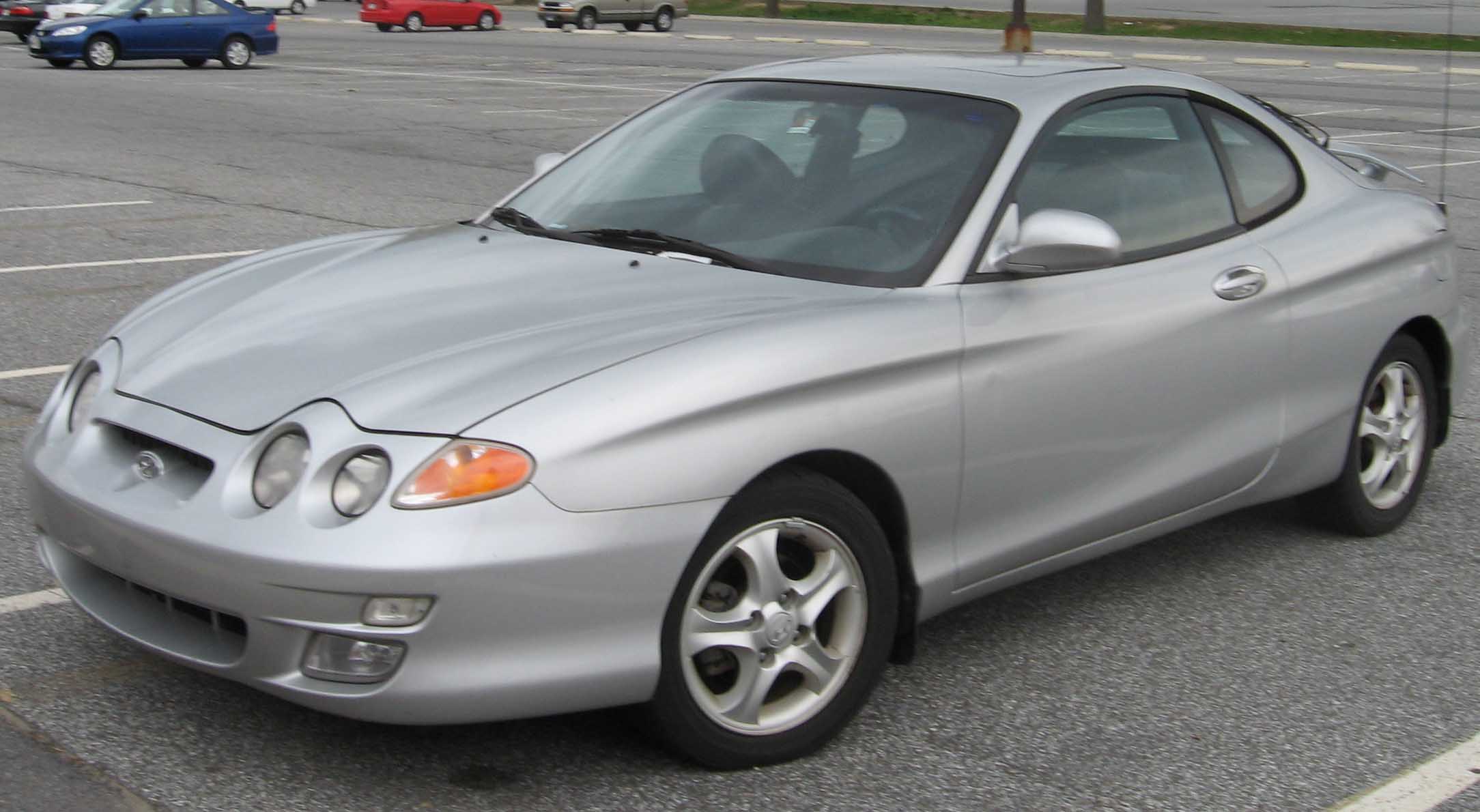-
Posts
70 -
Joined
-
Last visited
Content Type
Profiles
Forums
Gallery
Downloads
Store
Posts posted by ToBeHuman
-
-
Amid reports that a Chinese automaker SAIC is considering buying a major stake in GM, China's Ministry of Industry and Information Technology is considering a controversial plan that would force U.S. companies that want to make electric vehicles (EVs) in China to hand over their EV technology to Chinese companies.
-
Ford hand-built 20 second-generation Mercury Sables with lightweight aluminum bodies and potent Taurus SHO V6 engines. The few of these rare rolling all-aluminum technology testbeds still around are now potentially headed for a Ford crusher. This is their story.
-
Of course the investigators cannot duplicate what happened. It's something in the electronics that only happens every once in awhile. Also they said that his breaks did not show wear that would be consistent if he was trying to apply full force to the break pedal. Who knows if he was? The car's brakes have all kinds of electronics controlling them too.
-
Absolutely untrue. I googled "Toyota acceleration" and got several pages of results. It's been covered by ABC, Business Week and the LA Times to name a few.
There will be more coverage when more is known, as a news story it's in limbo, I expect something to break eventually.
http://www.latimes.com/business/la-fi-toyo...0,5254584.story
I'm talking about this latest development of the sudden acceleration not being caused by a floor mat. I know the California CHP death and the floor mat recall has been covered heavily. This confirmed case of unintended acceleration not being caused by a floor mat is not showing up on any of the big news sites.
-
This story seems huge and you can only find it on a couple of websites.
HAS TOYOTA PAID OFF ALL THE BIG NEWS OUTLETS REGARDING THIS SUDDEN UNINTENDED ACCELERATION ISSUE ALREADY?
-
Read all the people's commments on this article. It seems like everyone commenting has had a Toyota accelerate on them and it's not due to teh floor mats.
-
I don't see how they could sue Ford. It looks like the roof held up pretty well for a roll over. If kids feel out, that's because they weren't belted, not because of roof failure.
-
One challenge that Ford still faces is managing emissions during cold start. Current cold start technologies from Ford tend to significantly reduce nitrogen oxide (NOx) emissions. In order to meet U.S. emissions guidelines, Ford may be forced not to deploy its 1.6 L and 2.0 L EcoBoost engines domestically.The resulting engine can be tuned to be very powerful -- when pushed, the 3.5 L V6 EcoBoost engine can put out up to 500 hp for a "couple hours" if smog emissions are thrown out the window.
-
From the rear/side view, it looks like they ripped the styling right off of a VW CC.
-
The wonder-system is in jeopardy, though, thanks to the departure of Joseph Berry, a senior Ford engineer. Mr. Berry is is currently in discussions with Ford over pending patents that Ford has filed for SYNC technology. He claims that he came up with much of the technology covered by these patents, which he is named as an inventor on, before he came to the company. The technology covered by these patents drives many of the features that drive SYNC. According to the Detroit News, Mr. Berry has been approached by other automakers looking to license the technology to make legal "SYNC-clones" of their own.
-
From the side it looks like a 4 door Hyundai Tiburon. LOL.

-
Acura has really been f*cking up lately.
-
-
Is it a cross over or a real SUV like the 1st Sorento?
-
Just watched the tail end of the XGames rally car racing on TV. It was in Carson, California at Home Depot Center where LA Galaxy plays. Brack won the event in a Ford Fiesta. He beat some other guy in a Subaru.
-
-
A/C
in Fusion Forum
This weekend I drove from Long Beach, CA to Laughlin, NV. About half way there it was 110°F. As we got closer it was 125°. I set the A/C to 70°F the whole trip. The car was loaded with four people and we did 80mph most of the way. The A/C kept the inside of the car at 70°F, no problem.
-
On the way it looks, it's the 2nd Kia that I like. I liked the styling of the Sorento when it 1st came out also.
-


New
'99 Mercury Cougar i4
'04 Mazda 3 S (Does this count?)
'07 Fusion SEL V6
Used
'94 Taurus SHO
'99 Contour SE V6
-
Anyone notice that the support car is an Edge?
-
Genepax Unveils a Car That Runs on Water and Air
Running a car on water has been the holy grail for car manufacturers for some time now, but it appears that a Japanese company named Genepax may have pulled ahead of the competition with a prototype vehicle that runs entirely on water and air. Their new "Water Energy System (WES)," generates power by supplying water and air to the fuel and air electrodes using a proprietary technology called the Membrane Electrode Assembly (MEA). The secret behind MEA is a special material that is capable of breaking down water into hydrogen and oxygen through a chemical reaction. -
My brother has an 88 Trooper with the 2.6 liter 4 cylinder that finally died at 300k miles. I've tried looking for used ones in good condition but it seems all Trooper owners take theirs offroad and they get all banged up.
-
Actually the exemption was supposed to encourage Nissan to built their cars with more American content. Here is the summary:
SUMMARY: Nissan North America, Inc. (Nissan) filed a petition requesting exemption from the two-fleet rule for the 2006-2010 model years. The two-fleet rule, which is contained in the corporate average fuel economy (CAFE) statute, requires that a manufacturer divide its passenger automobiles into two fleets, a domestically-manufactured fleet and a non-domestically manufactured fleet, and ensure that each fleet separately meets the CAFE standards for passenger automobiles.
Nissan filed the petition because a change under the statute in the treatment of value added to a vehicle in Mexico will cause one of that company's passenger automobiles, which is manufactured in Mexico, to be reclassified from non-domestic to domestic. The loss of these automobiles, which are relatively fuel-efficient, will cause its non-domestic fleet to fail to comply with the CAFE standards for passenger automobiles.
The CAFE statute requires the agency to grant such a petition unless it finds that doing so would result in reduced employment in the U.S. related to motor vehicle manufacturing. To determine if such a reduction would result, NHTSA compared vehicle prices and sales under two scenarios: a baseline scenario in which Nissan would not have an exemption and would need either to pay penalties for noncompliance or adopt any one of a number of optional courses of action to achieve compliance; and a scenario in which Nissan would have an exemption and would not bear any of the costs of the baseline scenario. The agency then attempted to estimate the effect of the sales changes on employment for each of the options. The analysis indicated virtually no employment effect for the option most likely (on the basis of cost) to be chosen by Nissan and only slight negative employment effects for the other options.
Nissan also pointed out employment effects that are not accounted for in our economic analysis. If we deny the petition, Nissan would likely purchase fewer parts from U.S. suppliers and more parts from foreign suppliers in order to recontent one of its vehicles. The result would be fewer American workers producing components to be used in Nissan cars. We are unable to quantify with precision the number of jobs potentially lost from denying the petition. It is likely, however, that more jobs would be lost if we deny the petition than would be lost if we grant it.
In sum, the evidence does not support a finding that granting the petition would reduce motor vehicle manufacturing employment in the U.S. The evidence suggests instead that granting the petition would likely help retain American jobs that might otherwise be sent overseas. Accordingly, the agency will permit Nissan to combine its domestic and non-domestic passenger automobile fleet for model years 2006-2010.
Or you can read the whole thing here: http://www.nhtsa.gov/cars/rules/CAFE/Rulem...etition2004.htm
-
Maybe I biased but I have an 07 Fusion SEL with the silver birch exterior and black leather interior. Everyone that rides in the car likes the interior. Some of my friends that commented that they like the interior, one drives an '04 Accord, another an '07 Charger and the last one an '05 Altima. The interior materials are of good quality and the design is upscale and not overdone.




SVT room in Facebook new Rooms app
in Ford Motor Company Discussion Forum
Posted
Hello All,
I created a new SVT room in Facebook's new Rooms app. It's a place to post pics of SVT's and ST's. You can get the app at www.rooms.me and can use the attached image to join the room.
Chris